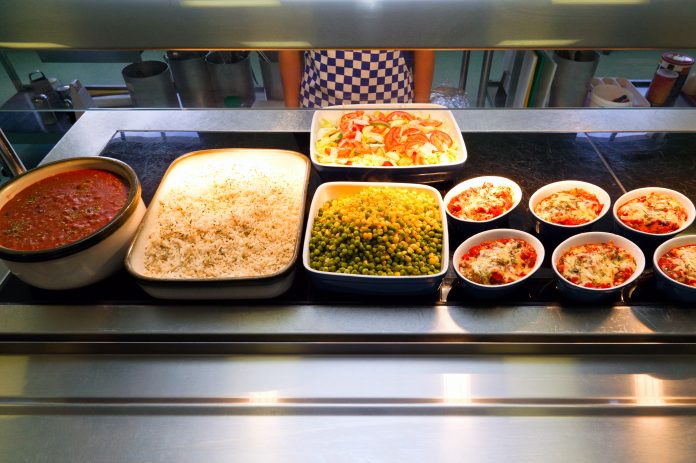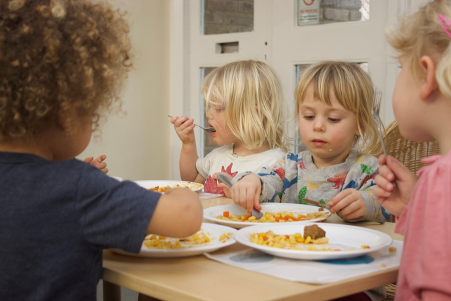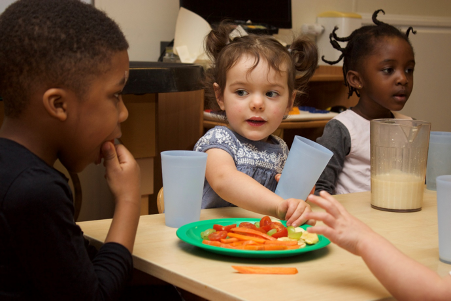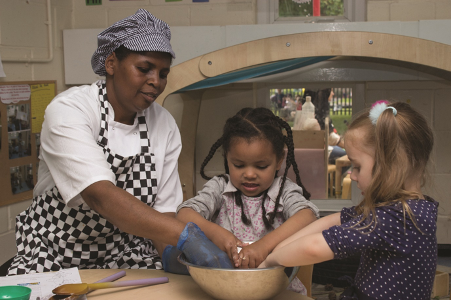June O’Sullivan MBE, CEO of London Early Years Foundation (LEYF), stresses the need for the Government to make the free school meal voucher scheme available to all children, including those below the age of five
The most recent and prominent campaign by Manchester United footballer, Marcus Rashford to extend free school meals over holidays during the COVID-19 pandemic and help the UK’s most vulnerable children has won the hearts of the British public whilst accelerating the much-needed debate about food poverty and also child poverty.
Despite Mr Rashford’s remarkable efforts, it’s astonishing (though sadly not surprising) that the Government has again ignored the Early Years sector and failed to include those children aged two to five who are accessing the disadvantaged two-year-old funding or the 15 funded hours.
As CEO of a childcare social enterprise which operates 39 nurseries across London (many in deprived communities), nurseries across the country are overwhelmed by the sheer demand for free food, clothing and hygiene products from parents badly affected by poverty during the pandemic. Many operators do what they can, but supplies are running short and we are seeing children arrive hungry. Children that young show their hunger in many ways including eating all the fresh food in the role play area or when making gloop and dough, telling us that they are hungry or sharing little snippets from home in their play which gives a real clue as to their circumstances.
Latest statistics by the Felix Food Project show that one in three (4.1 million) children live in poverty in the UK, with an estimated 2.5 million living in food insecure households. Data from Future Food Enquiry shows that the children in the poorest households are eating substantially less fruit and vegetables, with a shocking 0.3% of the most deprived children eating the recommended amount of fresh fruit and vegetables versus 8.4% of all children. Furthermore, the proportion of children in poverty with working parents has now reached an all-time high of 72% (Households Below Average Income Statistics 2018/19.Two decades ago, that was barely half.
Child obesity
The other concern is that children who may be experiencing a lack of food are also those most at risk of child obesity. This complex issue needs to be addressed at various touchpoints of a child’s life if we are to stop its continual growth. We need to start as early as possible given the World Obesity Federation shows that children start to show signs of obesity aged 2 years. We have seen this increase among children returning from lockdown where their main meals were cheap, highly calorific and nutrient low processed foods with high levels of sugar and salt which fail to produce satiety.
There are many efforts to consider about how we make systemic changes to reducing obesity – although the World Obesity Federation argue that we need to do a lot more to challenge marketing messaging and strengthen the way funding from taxes (such as the sugar tax) is ring fenced to deliver better intervention to drive healthy lifestyles.
The Mayor’s Child Obesity Taskforce in London has set out 10 Ambitions to follow the needs of children from their Early Years and examine how systemic changes can be made. This includes supporting efforts of the LEYF Early Years Chef Academy. which has a specific qualification for those chefs who work in the sector and was set up to train all chefs responsible for feeding over a million small children a day to prepare, cook and serve the most healthy, nutritious nursery meals. It’s an important touchpoint that can have a beneficial impact and easily expanded.
COVID-19
Since COVID-19, the demand for food banks from parents has escalated. Many nurseries are not only providing essential childcare but also helping to feed families by stocking essential food items for those families most in need and providing meal packs through their home learning initiatives. This is a popular way of combining learning with eating healthily by sending home the recipe and ingredients of an evening meal for the child and family to then cook together.
But while these measures are well meaning, they fail to address the underlying structural issue of poverty. We need to be investing in the Early Years, increasing the Government funding to nurseries and settings whilst guaranteeing all children a healthy meal as part of their education. Then, when children who access the funded hours-only or the two-year-old disadvantage provision are not attending their setting, they would receive a food voucher like their older siblings.
As we have seen in the news, the debate about food is becoming negative. It focuses on who is responsible for feeding children rather than a catalyst for a debate about what we feed them and how we ensure access to healthy food for all children. Surely, now our job is to use this debate to analyse the policies which we operate and ensure they avoid our small children being the subject of the next major public health crisis.
References
- Felix Food Project: https://thefelixproject.org/news/child-food-poverty-holiday-hunger].
- Future Food Enquiry Report: https://foodfoundation.org.uk/wp-content/uploads/2019/04/Childrens-Future-Food-Inquiry-report.pdf]
- Households Below Average Income Statistics 2018/19: https://www.gov.uk/government/collections/households-below-average-income-hbai–2
- The World Obesity Federation: https://www.worldobesity.org/
- Mayor for London Obesity Taskforce Press Release: https://www.london.gov.uk/press-releases/mayoral/taskforce-calls-for-action-on-obesity#:~:text=The%20independent%20taskforce%20has%20set,to%20help%20end%20child%20poverty%2C
- LEYF Early Years Chef Academy: https://leyf.org.uk/articles/chef-academy/
- NCFE CACHE Level 2 diploma in food production and cooking in early years: https://www.qualhub.co.uk/qualification-search/qualification-detail/level-2-diploma-in-food-production-and-cooking-in-early-years-78







![Europe’s housing crisis: A fundamental social right under pressure Run-down appartment building in southeast Europe set before a moody evening sky. High dynamic range photo. Please see my related collections... [url=search/lightbox/7431206][img]http://i161.photobucket.com/albums/t218/dave9296/Lightbox_Vetta.jpg[/img][/url]](https://www.openaccessgovernment.org/wp-content/uploads/2025/04/iStock-108309610-218x150.jpg)






